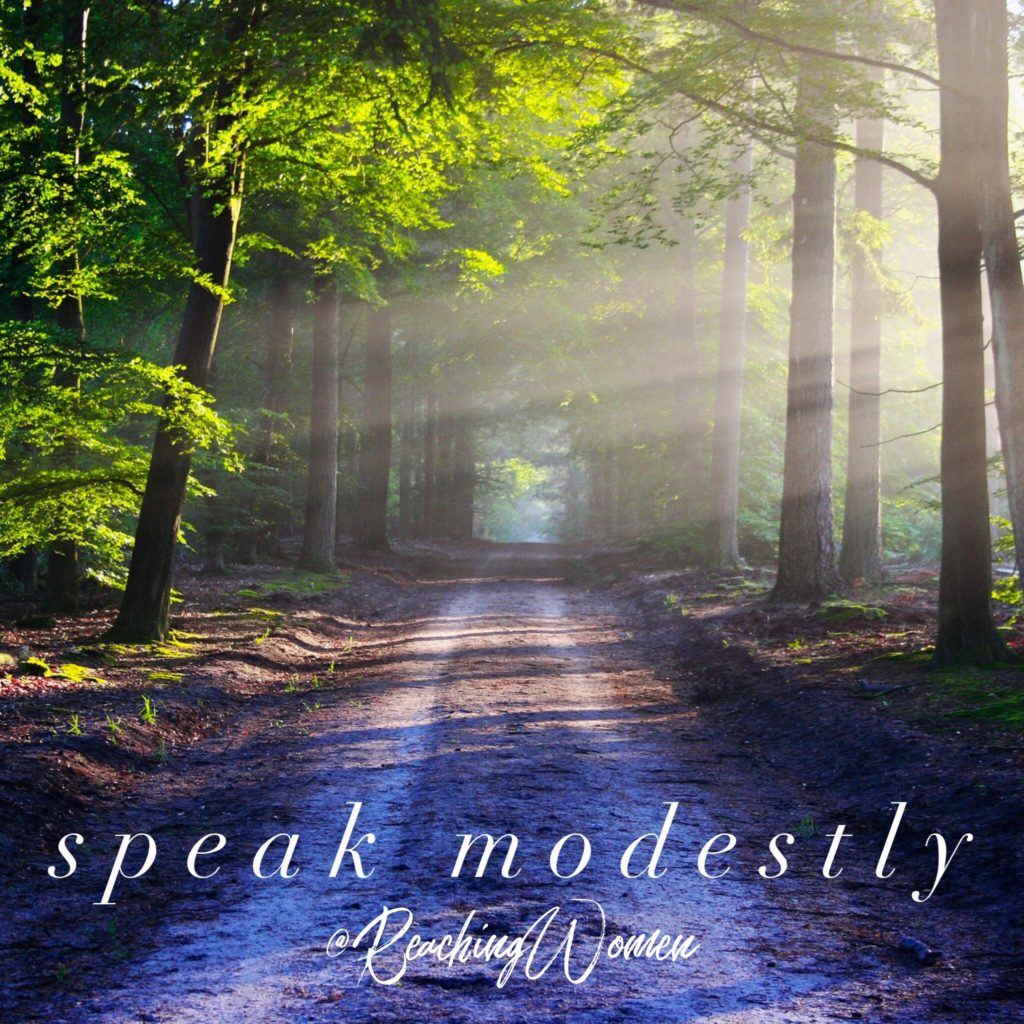In observance of my Benedictine Monastic practices, on the last Friday of each month in 2019 we’re walking Saint Benedict’s 12 Steps of Humility. With each step we come closer to our spiritual transformation and the perfect love of God.

The eleventh step of humility is that a monk speaks gently, with modesty, briefly and reasonably without raising their voice. ~ The Rule of Benedict
Speak concisely, say much in few words; be one who knows and yet holds their tongue. ~ Sirach 32:8
Healthy communication within a community is vital. Benedict thought it was so important that he devoted three of his 12 Steps of Humility to communication.
In Humility Step 9 Benedict advises us to actually listen more than we speak. Step 10 cautions us against making jokes at the expense of others feelings.
Now in Humility Step 11 Benedict describes the appropriate way that we should converse with others. We are to be generous and sincere in our listening. And when it’s our time to speak we are to brief and gentle with our words, not loud or boisterous.
This is definitely unlike our modern culture where people are blasting out opinions while ignoring anything that goes against their thoughts. Certainly not the kind of behavior that can build community. Rarely do we see actual conversation that allows both sides to gently share their views while listening kindly in return.
Participation in a community requires that we speak and also that we listen. In speech we must be candid, in listening we must be accessible. ~John McQuiston II
The one thing I find most appealing about Saint Benedict and his 12 Steps of Humility is that they are practical for use in any environment. They are timeless tools for running the home, office or a community of any size.
While speaking modestly comes naturally to some, it’s often more common among those who have gained some wisdom with years of life behind them. Elders are are usually more sparing with words than young people.
We can’t expect the youth to come by this virtue so quickly, but by walking in Benedict’s example we can help them put these lessons into practice.









